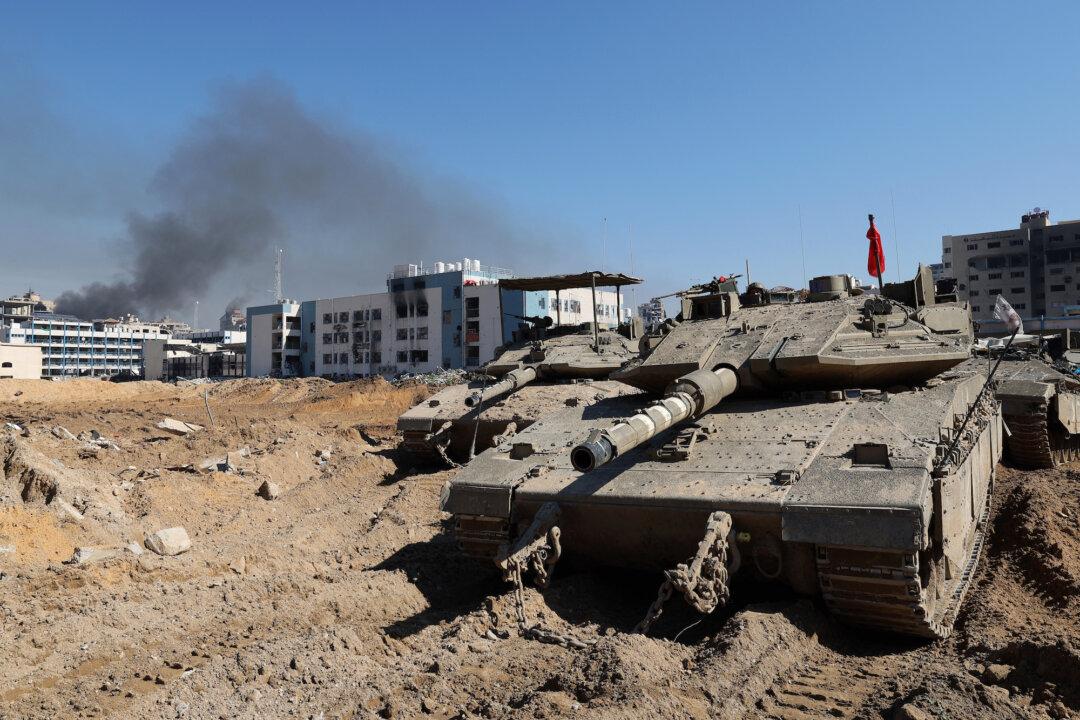The Israeli military has proposed a plan for attacking Hamas forces in Rafah, the city on the southern edge of the Gaza Strip where more than 1 million displaced Palestinians have been sheltering.
The Israel Defense Forces (IDF) “presented the war cabinet with a plan for evacuating the population from the areas of fighting in the Gaza Strip, and with the upcoming operational plan,” according to a statement from Israeli Prime Minister Benjamin Netanyahu’s office.





